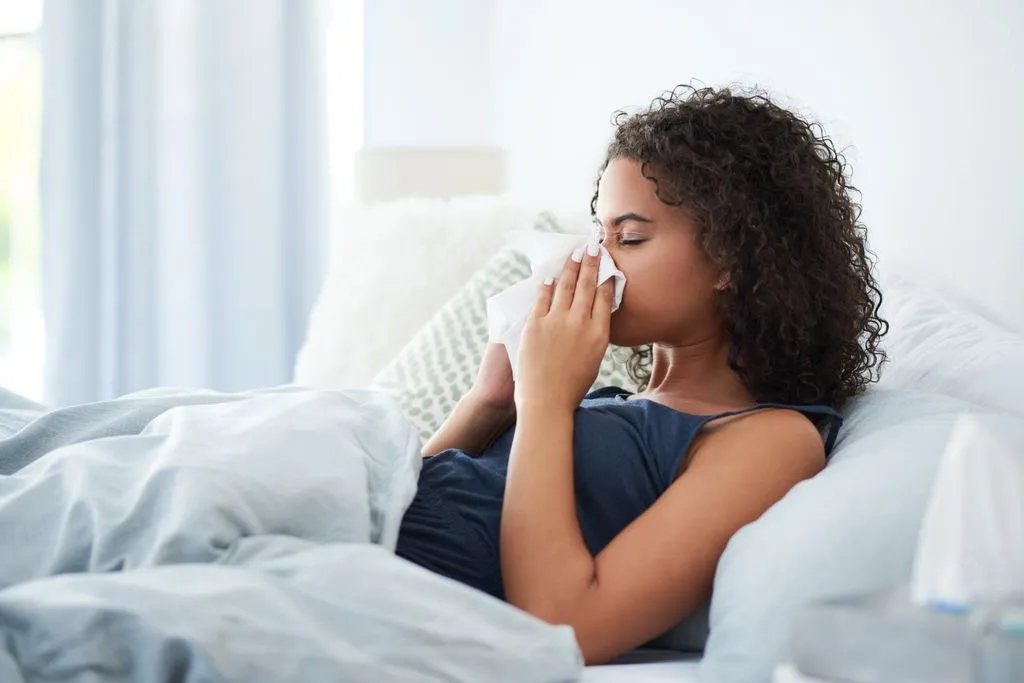Key Takeaways
- Sinus issues can lead to snoring and sleep apnea by causing nasal blockages that disrupt normal breathing.
- Symptoms of sinus-related sleep disturbances include loud snoring, gasping for air, and excessive daytime sleepiness.
- To diagnose sinus-induced sleep problems, a medical evaluation, including a sleep study, may be necessary.
- Home remedies like steam inhalation and staying hydrated can alleviate mild sinus congestion.
- Medical treatments range from minimally invasive procedures to the use of CPAP machines for more severe cases.
Explore the Connection
Your sinuses are a group of hollow spaces in your skull connected to your nasal passages. They help regulate the temperature and humidity of the air you breathe. When these get inflamed—say, from an allergy or a cold—they can block the airways, making it tough to breathe through your nose. This blockage can cause snoring and, in some cases, sleep apnea, a more serious condition where your breathing stops and starts while you sleep.
Causes of Sinus-Induced Snoring
From Congestion to Obstruction
When these issues persist, they can lead to chronic sinusitis, which keeps your sinuses inflamed and your nasal passages blocked for the long haul.
Sleep Apnea: When Your Sinuses Betray You
Diagnosing Sinus-Related Sleep Issues
When to See a Doctor
The Steps to Diagnosis
- Medical history review and physical examination.
- Possible referral to an ENT (ear, nose, and throat) specialist.
- Sleep studies, such as polysomnography, to monitor your sleep and breathing.
- Imaging tests, such as X-rays or CT scans, to check for blockages or structural issues in the sinuses.
Natural Remedies: Treating Sinus Problems at Home
Steam Inhalation
Herbal Allies for Clear Sinuses
Nature’s got your back when it comes to sinus relief. Herbs like eucalyptus, peppermint, and thyme are known for their decongestant properties. You can find them in teas, inhalers, or even as essential oils to diffuse in your bedroom. Just a few whiffs before bed can help you breathe easier.
The Power of Humidity and Hydration
Medical Interventions: When Natural Isn’t Enough
Advancements in Minimally Invasive Techniques
Oxygen’s Role: CPAP and Alternatives
If you’re diagnosed with sleep apnea, your doctor might suggest using a CPAP machine. CPAP stands for Continuous Positive Airway Pressure, and it helps keep your airway open while you sleep. There are also alternatives like oral appliances that can help in less severe cases.
Preventing Sinus Problems
Proper Sleep Hygiene
Keeping Your Sinuses Happy
Sleep Positions and Pillows
Frequently Asked Questions (FAQs)
Can allergic rhinitis cause nasal obstruction, snoring, and sleep apnea?
Yes, allergies can lead to snoring and sleep apnea. Allergic reactions often increase nasal resistance, congestion, and airway swelling, which may obstruct airflow and lead to snoring. In some cases, severe allergies can contribute to sleep apnea by causing repeated airway obstructions during sleep.
Are there specific foods that can relieve sinus snoring?
Is it possible to cure obstructive sleep apnea without medical devices?
How do I know if my snoring is related to sinus issues?
For example, consider the case of Sarah, a 35-year-old woman who struggled with chronic sinusitis and loud snoring. After seeking medical advice, she discovered that treating her sinusitis with a combination of nasal corticosteroids and saline rinses significantly reduced her snoring. This is a real-world example of how addressing sinus issues can lead to better sleep for both the individual and their partner.
Can children have sinus-induced snoring and obstructive sleep apnoea?
Is chronic nasal congestion a risk factor for other complications?
How do you select the appropriate face mask to improve airflow in the nasal passages?




